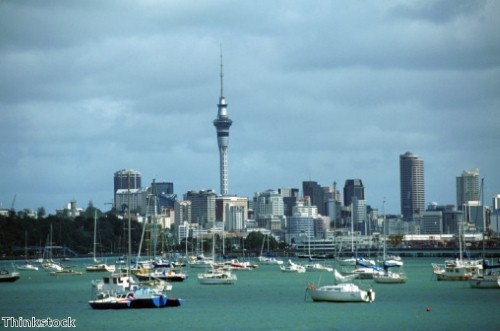PMs to discuss immigration visa conditions
- Details
- Created on Thursday, 07 February 2013 13:57
- Written by Editorial staff

How visa conditions affect New Zealanders who are living in Australia will be a key talking point for those nation's leaders when they meet tomorrow (February 8th).
Prime ministers John Key and Julia Gillard will discuss visa conditions as part of the annual prime ministerial talks, to take place in Queenstown over the next two days.
The Australian Associated Press (AAP) reported that since 2001, 280,000 Kiwi residents have been paying tax and living in Australia while being denied access to a permanent immigration visa - meaning they aren't eligible for voting rights or welfare benefits.
A report last year found that as a result of criteria and capped numbers, up to 100,000 people may never be able to access permanent residency.
Allowing those who hail from across the Tasman to obtain a permanent residency after living in Australia for eight years is an option that is being considered.
Mr Key said that a fairer balance needs to be established, adding: "There are a number of factors they need to consider.
"One of them is obviously the financial implications, but then there is whether they think there is fairness in the system as it currently sits."
Mr Key added that New Zealanders need to be aware of their rights and obligations while living abroad, such as paying income tax.
Although, it should be noted that New Zealand citizens can live and work in Australia without restriction.
It comes as a university study found that in the last two years, the number of immigrants that have come to Australia has been equalled by the number of jobs created.
Monash University and its Centre for Population and Urban Research found young Australians without higher education were losing out on jobs to foreigners as they tend to fill lower qualified positions.
One of the authors, Dr Bob Birrell, said that there is an emerging trend.
He explained: "The rate of employment growth has roughly halved since 2010, compared to mining boom years. Despite this, the Australian government has increased permanent immigration levels and encouraged the arrival of temporary workers."
Areas of work that are being targeted by temporary foreign workers and low-skilled Australians include the hospitality and retail sectors.
This battle for jobs is linked to a finding by the study that shows the employment sector is expanding where higher education qualifications are required. Jobs without the need for tertiary qualifications are becoming less and less apparent.
News Archive
- 2014
- 2013
- December (21)
- November (29)
- October (21)
- September (20)
- August (22)
- July (21)
- June (20)
- May (23)
- April (22)
- March (27)
- February (19)
- January (20)
- 2012
- December (14)
- November (17)
- October (20)
- September (16)
- August (23)
- July (21)
- June (18)
- May (22)
- April (18)
- March (20)
- February (18)
- January (19)
- 2011






